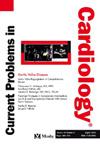心力衰竭和蛋白质卡路里营养不良患者的睾酮治疗:来自倾向匹配队列研究的见解
IF 3.3
3区 医学
Q2 CARDIAC & CARDIOVASCULAR SYSTEMS
引用次数: 0
摘要
睾酮治疗可改善慢性心力衰竭患者的体能和情绪。然而,最近的研究结果引起了人们的关注,睾酮治疗也可能增加房颤、肺栓塞和急性肾损伤的风险。方法利用TriNetX平台2014年1月1日至2024年12月1日的数据,我们对两组合并蛋白质-卡路里营养不良的心力衰竭患者进行了倾向匹配分析,两组患者之间唯一的区别是睾酮治疗。主要结局是全因死亡率和急性心力衰竭的发生率,次要结局包括主要不良心血管事件以及心血管、肾脏和血栓性疾病。结果倾向匹配后,两个队列中比较了577例患者。研究结果表明,睾酮治疗降低了全因死亡率(风险比[HR] 0.56, 95%可信区间[CI] 0.46-0.68)、急性心力衰竭(HR 0.62, 95% CI 0.49-0.78)和主要不良心血管事件(HR 0.77, 95% CI 0.61-0.97)的风险。此外,外周动脉疾病(HR 0.52, 95% CI 0.30-0.91)、冠状动脉疾病(HR 0.83, 95% CI 0.69-1.00)、急性心肌梗死(HR 0.65, 95% CI 0.48-0.89)和房颤(HR 0.79, 95% CI 0.66-0.95)的发生率也有利于睾酮治疗组。与睾酮治疗相关的静脉血栓栓塞(HR 1.14, 95% CI 1.03-1.27)和中风(HR 1.12, 95% CI 0.81-1.54)风险有增加的趋势。结论:这些产生假设的发现支持睾酮治疗对心力衰竭和蛋白质-卡路里营养不良患者的潜在有益作用。本文章由计算机程序翻译,如有差异,请以英文原文为准。
Testosterone therapy in patients with heart failure and protein-calorie malnutrition: Insights from a propensity-matched cohort study
Introduction
Testosterone therapy may improve physical capacity and mood in men with chronic heart failure. However, recent findings have raised concerns that testosterone therapy could also increase the risk of atrial fibrillation, pulmonary embolism, and acute kidney injury.
Methods
Leveraging data from the TriNetX platform from January 1, 2014, to December 01, 2024, we conducted a propensity-matched analysis of two cohorts of patients with heart failure with protein-calorie malnutrition, where the only difference between cohorts was testosterone therapy. The primary outcomes were all-cause mortality and the incidence of acute heart failure, with secondary outcomes including major adverse cardiovascular events as well as cardiovascular, kidney, and thrombotic diseases.
Results
After propensity matching, 577 patients were compared across the two cohorts. The findings indicated that testosterone therapy reduced the risk of all-cause mortality (hazard ratio [HR] 0.56, 95 % confidence interval [CI] 0.46–0.68), acute heart failure (HR 0.62, 95 % CI 0.49–0.78), and major adverse cardiovascular events (HR 0.77, 95 % CI 0.61–0.97). Additionally, incident peripheral arterial disease (HR 0.52, 95 % CI 0.30–0.91), coronary arterial disease (HR 0.83, 95 % CI 0.69–1.00), acute myocardial infarction (HR 0.65, 95 % CI 0.48–0.89), and atrial fibrillation (HR 0.79, 95 % CI 0.66–0.95) also favored the testosterone-treated cohort. There was a trend toward an increased risk of venous thromboembolism (HR 1.14, 95 % CI 1.03–1.27) and stroke (HR 1.12, 95 % CI 0.81–1.54) associated with testosterone therapy.
Conclusion
These hypothesis-generating findings support potential beneficial effects of testosterone therapy in patients with heart failure and protein-calorie malnutrition.
求助全文
通过发布文献求助,成功后即可免费获取论文全文。
去求助
来源期刊

Current Problems in Cardiology
医学-心血管系统
CiteScore
4.80
自引率
2.40%
发文量
392
审稿时长
6 days
期刊介绍:
Under the editorial leadership of noted cardiologist Dr. Hector O. Ventura, Current Problems in Cardiology provides focused, comprehensive coverage of important clinical topics in cardiology. Each monthly issues, addresses a selected clinical problem or condition, including pathophysiology, invasive and noninvasive diagnosis, drug therapy, surgical management, and rehabilitation; or explores the clinical applications of a diagnostic modality or a particular category of drugs. Critical commentary from the distinguished editorial board accompanies each monograph, providing readers with additional insights. An extensive bibliography in each issue saves hours of library research.
 求助内容:
求助内容: 应助结果提醒方式:
应助结果提醒方式:


